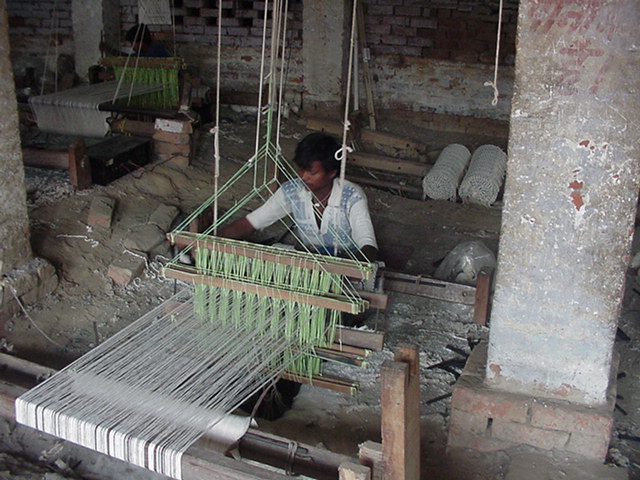
We are all familiar with the term cottage industry. Cottage Industry is defined as a manufacturing activity operated at home. In other words, a usually small scale industry carried on at home (or a nearby place), by family members using their own equipment, is called a cottage industry. This is a form of unorganised industry in which people are engaged in craftsmanship works such as handicrafts, pottery, knitting, handloom, etc. Cottage Industry is primarily concerned with manufacturing and includes many producers, working from their homes, who are organised through the putting-out system. The biggest contributors in this system were the merchant capitalists and the rural workers. The merchant would “put out” basic materials to the cottage workers, who then prepared the materials in their own homes and returned the merchandise back to the merchant. The term originally referred to home workers who were engaged in a task such as sewing, lace-making, wall hangings, electronics or household manufacturing
FEATURES OF COTTAGE INDUSTRY :
Cottage industries are the type of industries where artistic and creative goods are produced using manual labour and techniques – for example the handloom and weaving industry. Some of the salient features of cottage industry are –
• They are set up or organised by people with private resources and raw materials.
• They usually use locally available people to get the work done. Sometimes, the family members also become a part of it.
• They make use of simple types of equipment.
• The capital investment is minimal.
• They make use of indigenous technology for producing their goods.
• They make use of minimal raw materials to produce simple goods.
BENEFITS OF COTTAGE INDUSTRIES :
The top five Indian cottage industries are cotton weaving, silk weaving, carpet making, leather industry, metal handicrafts and small food processing industries. Cotton weaving is very important cottage industry in India. This skill dates back to ancient times as cotton clothing has been in huge demand all around the country, since time immemorial. While cottage industry operators may face some legal challenges and obstacles from large competitors, they do enjoy several key benefits.
• Convenience – Cottage industries primarily operate from home and this makes it convenient for operators as they do not need to leave home. The commute time as well as the cost gets saved. You can set up a shop or work area and share home and business equipment.
• Low start-up costs – Cottage business start-up costs are generally low. You don’t need a separate space and that saves a lot of money. Moreover, you don’t have to buy separate equipment, tools, shelving, fixtures and other materials to maintain and use in the business. All these cut down the operating cost.
• Employment alternative – Women have benefitted a lot from the evolution of cottage industries, since it offers an alternative to choosing between career and family, which is always a difficult choice to make. For example, a stay-at-home mom may balance caring for her children with operating a home-based cup cake production business. Families can also start small side businesses from home that provides supplemental income.
• Specific legal protection – Increasingly, local state and federal governments are recognising the value of cottage industries and they are working to add more and more specific legal protection to them.